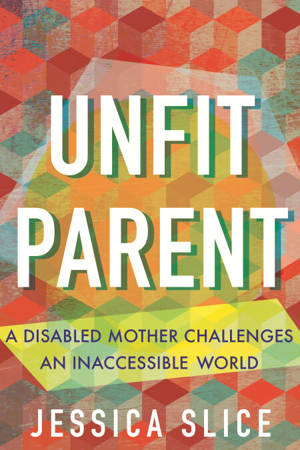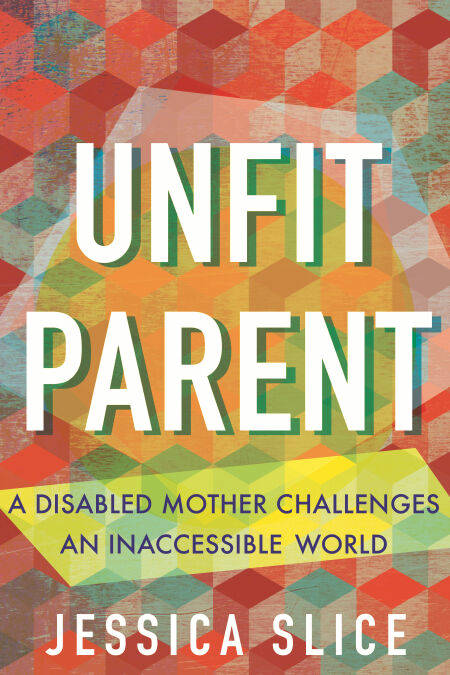
- Afhalen na 1 uur in een winkel met voorraad
- Gratis thuislevering in België vanaf € 30
- Ruim aanbod met 7 miljoen producten
- Afhalen na 1 uur in een winkel met voorraad
- Gratis thuislevering in België vanaf € 30
- Ruim aanbod met 7 miljoen producten
Zoeken
Unfit Parent E-BOOK
A Disabled Mother Challenges an Inaccessible World
Jessica Slice
E-book | Engels
€ 28,54
+ 28 punten
Uitvoering
Omschrijving
"Beautiful and razor-sharp…cannot recommend highly enough."
—Ann Helen Petersen, Culture Study
"Cuts boldly and beautifully through that silence, inviting readers to imagine what our world might look like if we met every family where they are."
—Vogue
“A beautiful, transformative book about being a parent in a world that rejects frailty and weakness.”—Rachel Aviv, staff writer at the New Yorker
A paradigm shifting look at the landscape of disabled parenting—the joys, stigma, and discrimination—and how disability culture holds the key to transforming the way we all raise our kids
In Unfit Parent, Slice debunks the exclusionary myths that deem disabled people “unfit” to care for their children, instead showing how disabled parents and disability culture provide valuable lessons for rejecting societal rules that encourage perfectionism and lead to isolation.
Combining her personal experiences with interviews, research-backed evidence, and disability studies, Slice shares insight into what the landscape is like for disabled parents—one that is scattered with unpredictable obstacles and inaccessible barriers, including:
How do you find adaptive baby equipment? How do two disabled parents creatively keep their children safe? How do you get reproductive care when the medical system assumes you aren’t able to have kids? What is it like to be in public knowing that someone might call child protective services simply because a parent is disabled?
In overcoming these challenges, she describes how disabled parents are oftentimes more prepared to adapt to the demanding nature of parenthood, including the uncertainty of losing control over bodily autonomy.
Uplifting and powerful, Unfit Parent illuminates how disabled bodies and minds give us the hopeful perspectives and solutions we need for transforming a societal system that has left parents exhausted, stuck, and alone.
—Ann Helen Petersen, Culture Study
"Cuts boldly and beautifully through that silence, inviting readers to imagine what our world might look like if we met every family where they are."
—Vogue
“A beautiful, transformative book about being a parent in a world that rejects frailty and weakness.”—Rachel Aviv, staff writer at the New Yorker
A paradigm shifting look at the landscape of disabled parenting—the joys, stigma, and discrimination—and how disability culture holds the key to transforming the way we all raise our kids
In Unfit Parent, Slice debunks the exclusionary myths that deem disabled people “unfit” to care for their children, instead showing how disabled parents and disability culture provide valuable lessons for rejecting societal rules that encourage perfectionism and lead to isolation.
Combining her personal experiences with interviews, research-backed evidence, and disability studies, Slice shares insight into what the landscape is like for disabled parents—one that is scattered with unpredictable obstacles and inaccessible barriers, including:
How do you find adaptive baby equipment? How do two disabled parents creatively keep their children safe? How do you get reproductive care when the medical system assumes you aren’t able to have kids? What is it like to be in public knowing that someone might call child protective services simply because a parent is disabled?
In overcoming these challenges, she describes how disabled parents are oftentimes more prepared to adapt to the demanding nature of parenthood, including the uncertainty of losing control over bodily autonomy.
Uplifting and powerful, Unfit Parent illuminates how disabled bodies and minds give us the hopeful perspectives and solutions we need for transforming a societal system that has left parents exhausted, stuck, and alone.
Specificaties
Betrokkenen
- Auteur(s):
- Uitgeverij:
Inhoud
- Aantal bladzijden:
- 216
- Taal:
- Engels
Eigenschappen
- Productcode (EAN):
- 9780807013250
- Verschijningsdatum:
- 14/04/2025
- Uitvoering:
- E-book
- Beveiligd met:
- Adobe DRM
- Formaat:
- ePub

Alleen bij Standaard Boekhandel
+ 28 punten op je klantenkaart van Standaard Boekhandel
Beoordelingen
We publiceren alleen reviews die voldoen aan de voorwaarden voor reviews. Bekijk onze voorwaarden voor reviews.








